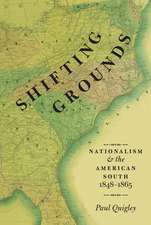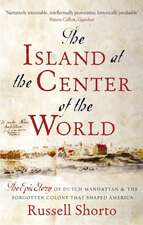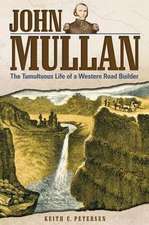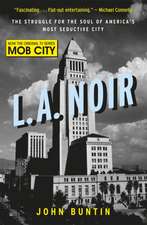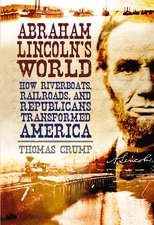A People's History of Environmentalism in the United States
Autor Professor Chad Montrieen Limba Engleză Paperback – 5 oct 2011
| Toate formatele și edițiile | Preț | Express |
|---|---|---|
| Paperback (1) | 230.69 lei 6-8 săpt. | |
| Bloomsbury Publishing – 5 oct 2011 | 230.69 lei 6-8 săpt. | |
| Hardback (1) | 713.72 lei 6-8 săpt. | |
| Bloomsbury Publishing – 5 oct 2011 | 713.72 lei 6-8 săpt. |
Preț: 230.69 lei
Preț vechi: 265.51 lei
-13% Nou
Puncte Express: 346
Preț estimativ în valută:
44.15€ • 45.81$ • 36.90£
44.15€ • 45.81$ • 36.90£
Carte tipărită la comandă
Livrare economică 18 martie-01 aprilie
Preluare comenzi: 021 569.72.76
Specificații
ISBN-13: 9781441198686
ISBN-10: 1441198687
Pagini: 200
Dimensiuni: 156 x 234 x 10 mm
Greutate: 0.34 kg
Editura: Bloomsbury Publishing
Colecția Continuum
Locul publicării:London, United Kingdom
ISBN-10: 1441198687
Pagini: 200
Dimensiuni: 156 x 234 x 10 mm
Greutate: 0.34 kg
Editura: Bloomsbury Publishing
Colecția Continuum
Locul publicării:London, United Kingdom
Caracteristici
Key reading for students of US environmental history, and labor and social history
Notă biografică
Chad Montrie is Professor of History at the University of Massachusetts Lowell. His most recent book is Making a Living: Work and Environment in the United States (2008)
Cuprins
Preface / Introduction - Shaking Up What, When and Why / 1. Puritan to Yankee Redux: Farming, Fishing and Our Very Own Dark, Satanic Mills / 2. Why Game Wardens Carry Guns and Interpretive Rangers Dress Like Soldiers: Class Conflict in Forests and Parks / 3. Missionaries Find the Urban Jungle: Sanitation and Worker Health and Safety / 4. Green Relief and Recovery: By Which Working People and Nature Get a New Deal / 5. A Popular Crusade: Organized Labor Takes the Lead Against Pollution / 6. To Stir Up Dissent and Create Turmoil: Inventing Environmental Justice / Conclusion - Rethinking Environmentalism, Past and Present / Bibliographic Essay / Index.
Recenzii
Chad Montrie puts people back into nature in this compelling and powerfully argued portrait of the class dimensions of U.S. environmental history. Essential reading for all those interested in a bottom-up view of the environmental movement
An engaging, critical synthesis of 20 years of new scholarship in environmental and labor history, A People's History of Environmentalism tells a new story of the emergence and power of environmentalism as a movement forged by common people in defense of their lives and livelihoods. Countering previous arguments that environmentalism began in post-World War II middle-class suburbs, Montrie redefines environmentalism as a grass-roots, working class response to industrialization and urbanization dating from the early 19th century. From the start, this movement included workers' resistance to elite attempts to control nature both for profit and for upper-class leisure. Montrie narrates the growth of working-class environmentalism and its successes and failures from the textile mills of New England, to the Chicago streets around Hull House, to automobile plants of Michigan, to the coal mines of Appalachia, and to the agricultural fields of California, with other stops along the way. This detailed but accessible book offers a forceful new interpretation of American environmentalism and rewrites the narrative of the modern environmental movement to include the crucial role of working class men and women in the fight for a healthy environment
Chad Montrie's masterful book rightfully returns working peoples to the center of the story of American environmentalism. Deftly moving between time and place, Montrie's social and environmental history balances fascinating narratives with a broad overview of how the stories of millworkers, hunters, New Deal laborers, union activists, and farmworkers are intimately connected. A must-read for anyone interested in the roots of contemporary environmentalism
An engaging, critical synthesis of 20 years of new scholarship in environmental and labor history, A People's History of Environmentalism tells a new story of the emergence and power of environmentalism as a movement forged by common people in defense of their lives and livelihoods. Countering previous arguments that environmentalism began in post-World War II middle-class suburbs, Montrie redefines environmentalism as a grass-roots, working class response to industrialization and urbanization dating from the early 19th century. From the start, this movement included workers' resistance to elite attempts to control nature both for profit and for upper-class leisure. Montrie narrates the growth of working-class environmentalism and its successes and failures from the textile mills of New England, to the Chicago streets around Hull House, to automobile plants of Michigan, to the coal mines of Appalachia, and to the agricultural fields of California, with other stops along the way. This detailed but accessible book offers a forceful new interpretation of American environmentalism and rewrites the narrative of the modern environmental movement to include the crucial role of working class men and women in the fight for a healthy environment
Chad Montrie's masterful book rightfully returns working peoples to the center of the story of American environmentalism. Deftly moving between time and place, Montrie's social and environmental history balances fascinating narratives with a broad overview of how the stories of millworkers, hunters, New Deal laborers, union activists, and farmworkers are intimately connected. A must-read for anyone interested in the roots of contemporary environmentalism


